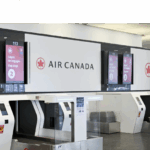Barbadians are being called to brace for yet another wave of price increases, this time driven by factors well beyond our control. Central Bank Governor Dr Kevin Greenidge has issued a sobering but necessary warning that inflation, currently at 0.5 per cent, is expected to rise to around 2 per cent by the end of the year.
The cause? Surging global import costs and new United States tariffs represent pressures that are already making their way through international supply chains and inching their way toward our supermarket shelves.
While a jump from 0.5 to 2 per cent may seem mild to many citizens, it is important to understand what this means in practice. For the average Barbadian, already burdened by high prices for food, fuel, and basic services, this spells more economic discomfort. Governor Greenidge was frank in his midyear economic review, stressing that despite the official numbers, people are not feeling relief. The cost of living remains high, and the anticipated increase in inflation will only stretch household budgets further.
The root of this challenge lies in Barbados’ dependence on imports. With 75 to 80 per cent of goods sourced from abroad and a fixed exchange rate tied to the United States dollar, we are deeply vulnerable to international shifts. As Dr Greenidge explained, American inflation is feeding directly into our local prices with only a few months’ delay. That lag time is fast approaching its end.
But while the situation is concerning, it is not hopeless. This moment presents an opportunity for Barbados to double down on longer-term strategies that can help reduce our economic vulnerability. Governor Greenidge suggested that investing in renewable energy to cut our dependence on imported fuel is a sound move for both economic and environmental reasons. However, there are additional areas that must come to the forefront: food security and a greater shift towards inter-regional trade.
For too long, Barbados has relied heavily on importing food products that could be grown or produced within the Caribbean. This overdependence not only drains precious foreign reserves but also leaves the island exposed to price shifts in markets that have little connection to us.
Developing stronger domestic agriculture and improving food processing capabilities must become a national priority. We must strengthen ties with our regional neighbours to tap into excess production, increase exchange of knowledge, and reduce overall costs.
More inter-regional trade offers a powerful solution. CARICOM, though often and rightly criticised for inefficiencies, still holds the best potential as a buffer against global supply disruptions. If Barbados can diversify and expand its trade relationships within the region by sourcing more produce, goods, and materials from the Caribbean, it will not only reduce import costs but also strengthen regional partnerships and relations. Importing items like meats, fruits, vegetables, and even construction inputs like lumber from Guyana, must be more than a slogan; it must be a national strategy.
These shifts will not happen overnight. Policies, strategic investment, and political will are needed to make them possible. As the country grapples with inflationary pressures, we must view this not only as a crisis to manage but as a turning point for the region.
Dr Greenidge also emphasised the need for businesses to focus on revenue generation rather than merely cutting costs. This too is essential. If companies can offer better value, expanding services, and tapping into regional markets, they can help grow the economy in ways that ease the cost of living for consumers.
Households, too, have a role to play. We cannot ignore our responsibility to manage personal expenses, reduce energy costs, buy local when possible, and support our farmers. These are important steps in building economic resilience.
Barbados cannot insulate itself from every major economic shock but we can reduce our exposure. The key lies in adopting policies that support regional cooperation and local production.
Inflation is rising, but we are certainly not helpless. There are solutions right here at home and within the region.
The post Bracing for higher prices but regional trade could help appeared first on Barbados Today.


